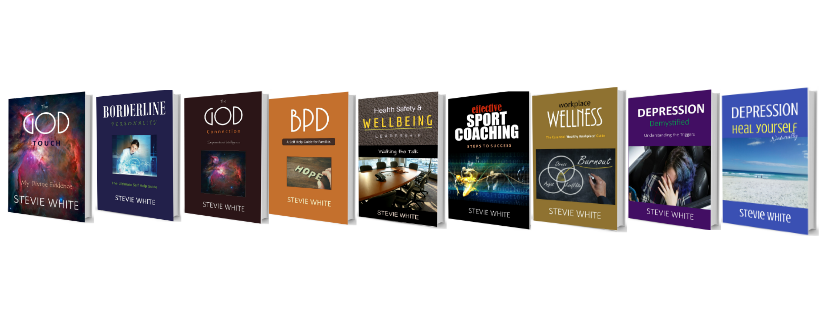The Health Benefits of Resting

Can you relate to your own daily life or work experience, by answering these questions honestly?
Do you find it difficult to relax at the end of the day? Do you often feel lethargic or fatigued? Do you find it hard to detach from your daily routines? Do you feel exhausted when you finish your workday?
Are you getting adequate rest each day, and do you take regular rest breaks during the day? Are you the type of person who just keeps saying I don’t have time? Do you believe you need to take more time-out for yourself?
If you answered yes to any of these questions, there a good chance the cause of these thought patterns is associated with your emotional stress level.
Unfortunately, when you are stressed, you’re increasingly likely to be experiencing confusion, irritability, anxiousness, or mental fatigue. You may also have trouble falling asleep, staying asleep, or sleeping undisturbed. In addition, any quality time spent in the deep sleeping mode may also become compromised – and, besides feeling more irritable and frustrated when you awaken, your mind and body can become more reactive to your stressors the next day.
Sadly, this can not only have a negative ripple effect upon how you feel when you awaken the next day, it can also negatively affect your immune system – subsequently, you become more prone to illness.
Therefore, where your health is concerned, ‘rest’, ‘recreation’ and ‘restful sleep’ plays a particularly important role in your well-being status.
If your stress is not reduced or diffused, you can experience physiological effects. Add this behavior to the increased levels of cortisol (a stress hormone) traveling through your bloodstream when your stressed – will in turn increase autonomic mind arousal and get your heart racing or revved-up more.
Both of which are counter-productive in helping you attain health or fall asleep.

In today’s modern and frantic world of technology and other normal day-to-day life demands - you may find it difficult to nail down a regular time slot in your day just for ‘rest’. You may even question the need for regular rest because you may be a go-getter type of person, and one who simply doesn’t like doing nothing.
Similarly, you may get bored when you’re not being active, or you just prefer to be busy. I’m sure you know someone close by, whom you would class as a workaholic or you can see or observe someone daily who is constantly on the move or leading a frantic day-to-day life. I think it’s important to also surface that millions of people go about their daily lives not understanding the importance of taking a rest, or similarly to the health benefits it can bring.
What is Rest?
In defining rest, I came across numerous definitions. For example, one stated it to be ‘the need to cease work or movement in order to relax, sleep, or recover strength’. Do you feel relaxed and strong?
I’ve seen other definitions portrayed as an ‘instance or period of resting’ or as ‘a state of motionlessness or inactivity.’ Are you experiencing resting or inactive periods during your day?
Numerous global studies exist when it comes to highlighting that people who participate in physical activity have better concentration, their memories are better, and they tend to focus better.
Yet, what I found interesting about an article published in a Harvard magazine I sighted - it stated that humans are actually ‘born to rest’.
According to Professor of Biological Sciences Lieberman - he explains that there are evolutionary forces at play and although the past archaic hunter-gatherer mentality of ages gone by was once predominated with exercise as hunting daily for food. Nowadays we are more attuned to seeking out rest and he says that humans have also been selected to exercise only as much as they must to survive.
In fact, his investigations honed a ‘propensity to laziness’. In a research paper he wrote titled ‘Is Exercise Really Medicine? An Evolutionary Perspective.’ He stated. “It is natural and normal to be physically lazy.” [1]
In other words, the human body is designed to be operating in a low key homeostatic state, whereby blood pressure, heart rate, and other physiological elements etc. are operating in a steady state.
However, certain actions or exposures can alter or negatively affect this equilibrium, and thus well-being, in the body. When the body is out of alignment caused from overworking, stress, or adverse events you can waste a vast amount of mental and physical resources trying to return it to a balanced state again. So, the question beckons - why do you need to regularly rest?
Why do you need to regularly Rest?
During my research, I found numerous scientific based reasons for taking a regular rest time every week, and they really do become an effective tool for enhancing your health status. Some you may like, others you may not.
For instance, taking time out for regular resting can induce a physical transformation, reduce your stress levels, and gives you a chance for a break from intense activity or divest from work chores.
Studies have stated that getting away from work can not only help to boost your immune system; it, can also help you live a longer life. Bearing in mind also, that if you can take time away from life or work chores, it can lead to reduced risk of exhaustion or potential burn out, and it can restore your mental energy. Some researchers state it also makes you more creative.
For instance, resting can help to reduce your mind alertness and slow down your thinking, and let’s not dismiss the fact that it can assist you to experience a sounder and quality sleeping pattern.
If you can become disciplined and manage to taking those regular rest days; it can become fruitful in terms of helping to bring down your blood pressure and heart rate, which in turn can help get you a night of sound restful sleep. Of course, general rest is a vital cog in your overall well-being, and quality of life.
 |
 |
How can you Rest?
Fortunately, you can gain and experience rest in many situations.
Various influences can impact on your ability to rest. You may be a business owner whose daily aim is to be more productive; or, you may have a young family and taking time out or relaxing for a few moments is difficult to achieve. There are numerous ways for you to take a break to rest from your stressful chores or work. Some may work for you, some may not. It all depends on your current lifestyle and whether they suit your personality.
For instance, you may feel that you can gain some rest just by seeking to chill out at a quiet café to experience their favorite organic food or beverage. We humans are all different, so you need to find something that rocks your own boat, so to speak. I would suggest one thing early on though. And that is to reduce the amount of caffeine you consume and strive to organize some ‘technology downtime’. There are many studies outlining the health issues associated with internet over-usage – and my own book on ‘Internet Addiction’ is testimony of how this can become problematic.
What is important, is that you realize that 'resting is an obligation’ if you wish to become healthier.
In fact, resting can even be something as easy as not thinking about certain things for a while. Simply thinking about other things, can be enough to trigger a restful state of mind. Not thinking about anything can become very fruitful also, but it may take time and practice to achieve this (e.g. meditation). A vital step in your resting needs is to understand that ‘rest is sacred in your life’ and that rest is not just about sleeping.

The highly respective Mayo Clinic in the U.S. suggests ‘massage’ is a great way to help your mind and body relax and explain that Swedish’ massage techniques can be more gentle and appealing method of releasing muscle tension. [2, 3]
Another way to rest your body is to ‘take an ice bath’ or if that doesn’t sound too good to you, then ‘take a warm bath.’ As this can help you to ease any anxiety you may feel and at the same time help you to fall asleep at night. This change in your body temperature leads to melatonin production, which is a trigger for sleep. Some studies even recommend ‘aromatherapy’ as a way of gaining a sense of relaxation and improving mood states. Whilst others, suggest ‘listening to nature music’ or ‘meditation-based music’ has many benefits in terms of calming the mind.
Restful Sleep' is a productive strategy to provide you with a greater chance to experience restorative sleep again. Is Ben Franklin's famous statement correct when he said. "Early to bed and early to rise makes a man healthy, wealthy, and wise."
According to a newsletter presented by the prestigious Harvard Medical School in the U.S. you can ‘nap’ your way to better health and on way to achieve this is to take regular napping sessions or a ‘siesta’ during the day. And, if you consider the cultural norms of Latin America and the hot Mediterranean countries, who can suffer from sleep deprivation due to excessive night heat - an ‘afternoon siesta’ helps them de-stress during the day. [4]
Upon further scrutiny, I found that many studies are variable on this matter, as there can be various roadblocks (e.g. an illness or disease is present). However, it appears to be well-documented benefits – particularly, when its associated towards various worker types.
For instance, working men in various occupational roles can benefit from siesta’s or napping. Various studies have shown that shift workers, airline flight crews, medical interns, and highway drivers can nap their way to health. Just by taking a short 20-30 minute nap to help decrease fatigue and improve mental alertness. [5]
Do you find it difficult to fall asleep at night – or, if you do fall asleep you wake up and find it difficult to return to sleep? Do you wake up in the middle of the night and then feel as though you are wide awake? If you answered yes to any of these questions, then it may be a warning signal that you need to rest more.
Can
you swing in a half-hour nap during your day-to-day routine or workday?
Why not try grabbing a 20-minute siesta on your lunch hour, or a nap in
the morning and one in the afternoon if you’re home-based.
Is it time for you to call ‘time-out'
References
1. Shaw, J. (2016). ‘Born to Rest’. Harvard Magazine. Article cited online at https://www.harvardmagazine.com/2016/09/born-to-rest. September-October edition, 2016.
2. Dimitriu, A., & Wiki-How To. (2020). ‘How to Rest.’ Online
article updated: June 1, 2020. Expert Interview, 16 October, 2019.
3. Mayo Clinic. http://www.mayoclinic.org/healthy-lifestyle/stress-management/in-depth/massage/art-2004574.
4. Harvard Health Publications (2008). ‘Siestas and your heart: can you nap your way to health?’ Harvard Medical School. Online article cited at https://www.health.harvard.edu/newsletter_article/Siestas_and_your_heart_Can_you_nap_your_way_to_health. Published: January, 2008.
5. Inc. (2019). ‘A Day of Rest: 12 Scientific Reasons It Works - Most major religions call for a day of rest...science agrees’. Online article cited at https://www.inc.com/rhett-power/a-day-of-rest-12-scientific-reasons-it-works.html. Published: January1, 2019


